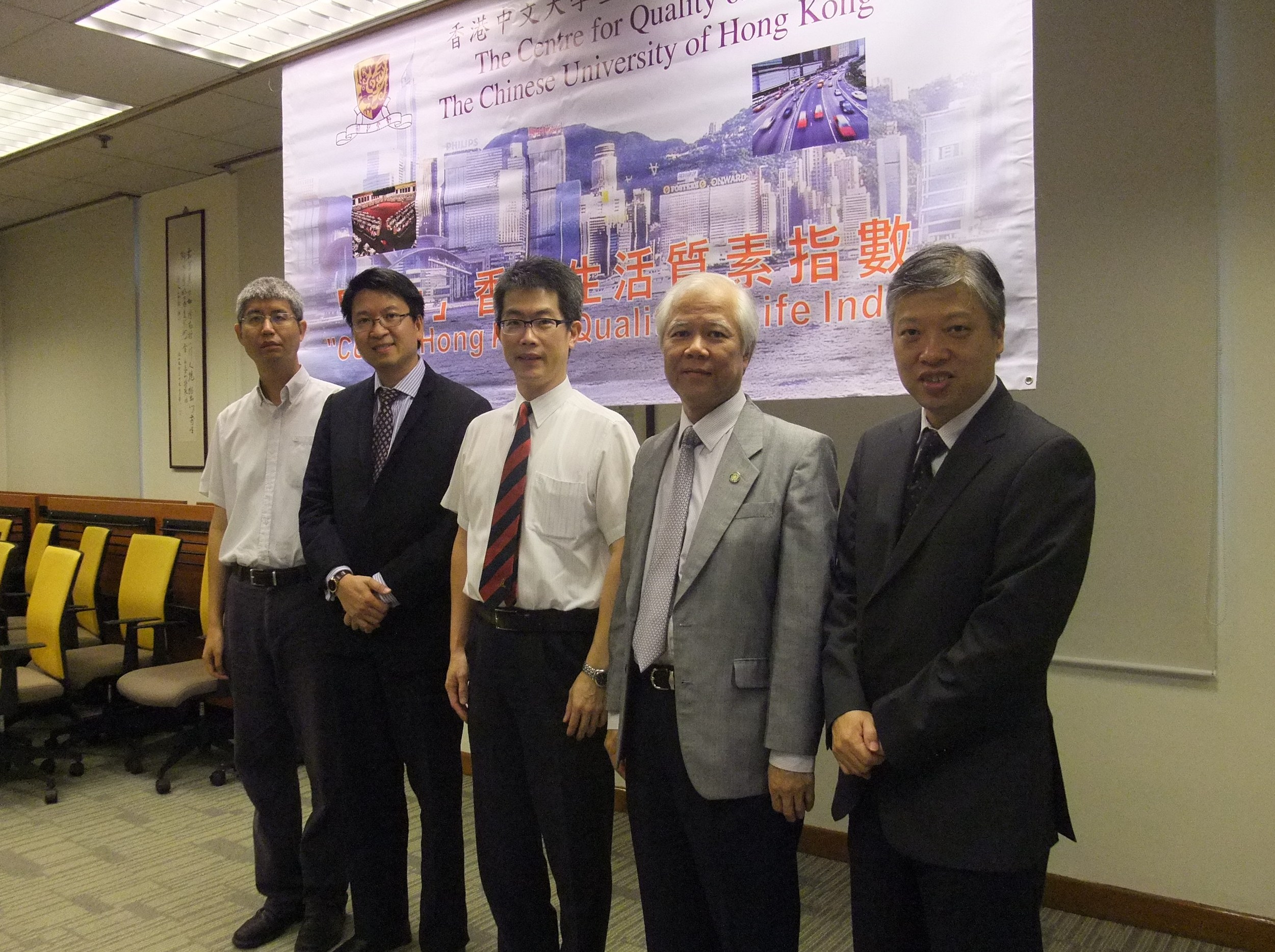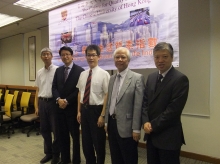CUHK
News Centre
CUHK Hong Kong Quality of Life Index:Quality of Life in Hong Kong Declined
The CUHK Hong Kong Quality of Life Index, compiled by the Centre for Quality of Life of The Chinese University of Hong Kong (CUHK), shows that the quality of life in Hong Kong declined in 2011, which is the second lowest score since the launch of Index in 2003.
According to the latest CUHK Hong Kong Quality of Life Index, the overall score in 2011 was 102.56, went down by 1.57 points from 2010 (104.13). The result indicates that the quality of life in Hong Kong declined (Appendix 1) in 2011.
The Index consists of 21 indicators that are grouped into three sub-indices, viz. social, economic and environmental (Appendix 2). The indicators are selected according to the coverage, measurability, representativeness, and importance to the quality of life in Hong Kong. The higher the score, the better the performance of the indicator.
Compared with the scores of 2010, only the environmental sub-index slightly improved in 2011, while the social sub-index and economic sub-index dropped. The economic sub-index even sank to its record low since 2002 (the base year) (Appendix 3.1). The result shows that the social and economic situation worsened in 2011.
Among the 21 indicators, 9 of them worsened in 2011 (Appendix 4), with the most notable being the housing affordability ratio (from -0.87 to -2.12), the lowest since the Index was launched. The result indicates that housing became significantly less affordable in 2011. The real rental index also dropped to a record low, which shows that tenants have to bear heavy rental burden. For the Government Performance Index, the scores dropped nearly 15% from 2010, which is only higher than the score of 2003.
Compared with 2010, 11 out of the 21 indicators improved in 2011 (Appendix 5), while the increase of most indicators were mild. Three indicators under the environmental sub-index went up, indicating that water quality, noise pollution and the recycle rate of solid waste had improved. Besides, public expenditure on education as a proportion (in percent) of the GDP remained unchanged (Appendix 1).
The CUHK Hong Kong Quality of Life Index was designed by the Faculty of Social Science in 2003. This composite index is intended to measure and keep track of the quality of life in Hong Kong in the 21st century, and to provide policy makers and the community with a useful reference tool. It also aims at enhancing the quality of life in Hong Kong by drawing the public’s attention to this issue. For this reason, the Centre for Quality of Life has been set up to conduct on-going quality of life research. Starting from the year of 2003, the Index has been released annually.
2002 was the base year of the study, and the CUHK Hong Kong Quality of Life Index for that year was set at 100. If the Index of a subsequent year is above 100, it means that the quality of life in Hong Kong in that year is better than that of 2002. If the index is below 100, it reveals that the quality of life in Hong Kong in that year is worse than that of 2002. If the Index is 100, it indicates that the Hong Kong quality of life in that year is the same as that of 2002.
For more information on the CUHK Hong Kong Quality of Life Index, please visit The Centre for Quality of Life website: www.cuhk.edu.hk/ssc/qol.
(From left) Prof. Ma Ngok, Associate Professor, Department of Government and Public Administration; Prof. Chong Tai-leung, Associate Professor, Department of Economics; Prof. Ng Sai-leung, Director, Centre for Quality of Life and Associate Professor, Department of Geography and Resource Management; Prof. Paul Lee, Dean of Social Science and Professor, School of Journalism and Communication; and Prof. Ting Kwok-fai, Professor, Department of Sociology, CUHK





